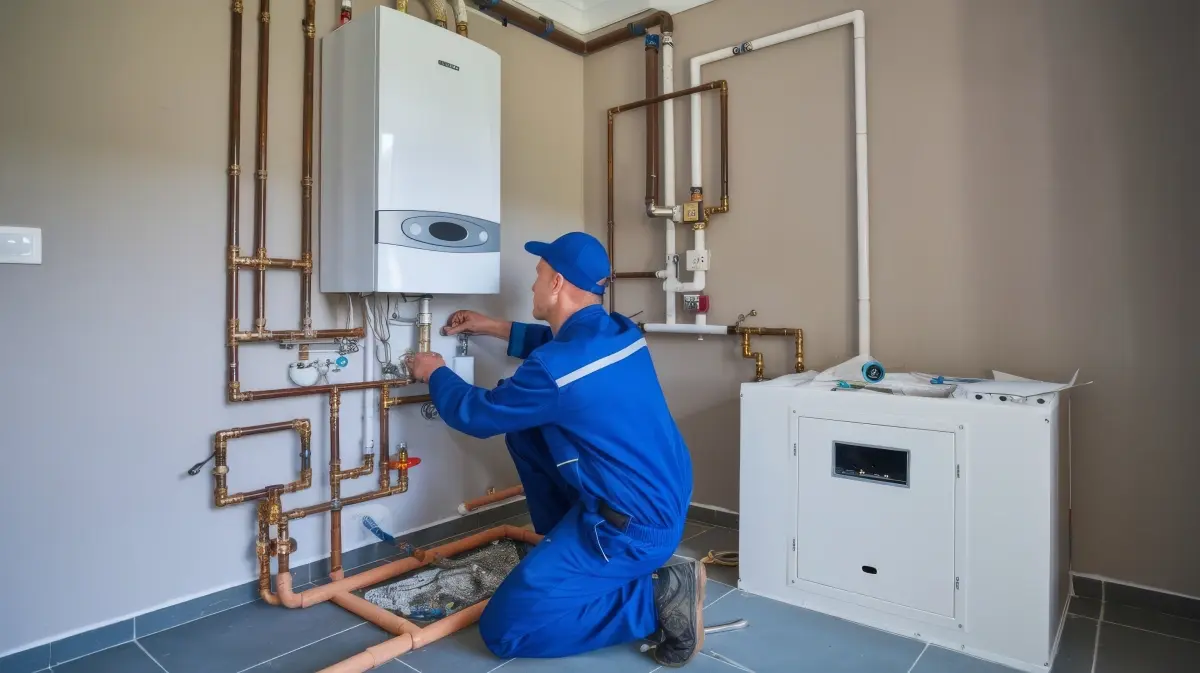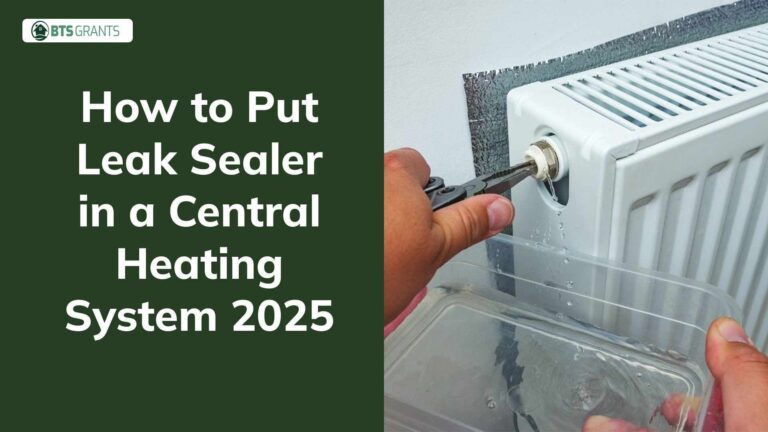![]()

How often should you replace your boiler? Maintaining a comfortable home and controlling energy costs requires replacing your boiler at the right time. Boilers are at the heart of your home and can contribute up to 60% of your energy bills if not serviced regularly.
By maintaining a boiler, you will run it less frequently or emit less energy. But how can you tell when it is time to replace it? Read on for the main signs your boiler is due for replacement, how long boilers last, and what benefits buying a new model could bring.
How Often Should You Replace Your Boiler?
Boilers are typically replaced every 10-15 years. However, the replacement frequency depends on usage, maintenance, and the boiler’s original quality. If your energy bills are rising, or you’re facing frequent breakdowns, it may be time to replace your boiler sooner rather than later.
Replace Your Boiler: How to Know It’s Time
If your boiler is maintained correctly, it can provide heat and hot water for 10–12 years. But eventually, there comes a point when repairing it again won’t help. Check your eligibility for the Government Free Boiler Scheme before your system fails. Recognizing the warning signs of an inefficient boiler can spare you high costs and improve energy efficiency. Here are a few telltale signs that you need to change your boiler.
How long does a boiler last?
On average, a boiler can last between 10 to 15 years, depending on the model and how well it’s maintained. Regular maintenance can extend this lifespan, but you should be prepared to replace it after 10-15 years to maintain efficiency and safety. Delaying a replacement could lead to higher energy bills and frequent repairs.
When Should You Replace Your Boiler?
- Your Boiler is an Old
Even if your old boiler appears to work fine, its efficiency may decrease significantly after 10-15 years. Newer boilers are far more energy-efficient and eco-friendly, so replacing an old unit could save you money in the long run. - Leaks and Water Damage
Visible leaks are a significant warning sign. These could stem from faulty pressure valves, corroded heat exchangers, or broken seals. Left unaddressed, leaks can lead to water damage in your home and costly repairs. If your boiler is leaking, it’s time to replace it. - Frequent Repairs
If you’re spending more on frequent repairs than a replacement would cost, it’s a clear sign that your boiler is nearing the end of its life. An outdated boiler will require constant maintenance, making replacement more cost-effective and energy-efficient. - Unusual Noises or Smells
Strange sounds or smells coming from your boiler may indicate internal damage or a carbon monoxide leak. Carbon monoxide is a dangerous gas that can lead to serious health issues. If you notice these signs, consider replacing your boiler immediately. - Fluctuating Water Temperature
If your hot water is consistent, this could be a sign that your boiler needs help maintaining pressure. If re-pressurizing doesn’t resolve the issue, replacing the boiler may be your best option.
How Do I Know If My Boiler Needs Replacing?
If you’re still unsure whether it’s time for a replacement, here are some additional signs:
- Rising Energy Bills
A decrease in boiler efficiency can result in higher energy bills. Newer, A-rated boilers can save you hundreds on energy costs annually. If your bills are increasing without any other explanation, it’s a sign that your boiler is inefficient and may need replacing. - Yellow Flame
A properly functioning boiler should have a blue flame. If it’s yellow, it may produce carbon monoxide, a severe health hazard. For safety, a carbon monoxide alarm should be installed near your boiler. - Low Energy Efficiency Rating
Boilers with a G-rating or lower waste more energy and Cost more to run. Upgrading to an A-rated model will reduce your carbon footprint and energy bills.
Why Should You Change Your Boiler?
Replacing an old or faulty boiler ensures your home stays warm and offers several other benefits. If you’re considering a replacement, you can apply for a free boiler grant in the UK.
- Increased Energy Efficiency
New boilers are designed to be more energy-efficient, reducing energy consumption and saving money. - Reduced Risk of Breakdowns
Older boilers are more prone to breakdowns. A new boiler gives you peace of mind and reduces the risk of unexpected repairs. - Lower Carbon Footprint
Modern boilers are more environmentally friendly, helping you reduce your carbon footprint.
Can You Get a Free Boiler Replacement?
You may be eligible for a free boiler replacement under the UK’s Energy Company Obligation (ECO) scheme. This government program helps low-income households improve energy efficiency. To qualify for a free boiler, you’ll need to meet specific criteria, including:
- If you rent, you must own your home or have your landlord’s permission.
- Your current boiler must be over five years old.
- You should receive certain government benefits such as child tax credits or pension credits.
Check your eligibility for the Government Free Boiler Scheme to see if you can get a free boiler and start saving on energy bills.
Conclusion
Replacing your boiler is a smart investment that can save money and prevent future repairs. Understanding how often you should replace your boiler and the benefits of a more efficient model will keep your home warm and reduce energy bills. If you’re facing frequent repairs, rising energy costs, or a too old boiler, it’s the right time to consult a professional about boiler replacement options.
FAQs
How do I know if my boiler needs replacing?
If your boiler is more than 10 years old, frequently breaks down, or causes high energy bills, it’s time to consider a replacement.
How long do boilers last on average?
Boilers typically last between 10-15 years. Regular maintenance can extend their lifespan, but after 15 years, it’s usually more efficient to replace them.
What are the signs of a faulty boiler?
Look for leaks, unusual smells, strange noises, or inconsistent hot water. These are all indicators that your boiler may need replacing.
How much can a new boiler save me on energy bills?
A new A-rated boiler can save up to £450 a year on energy bills compared to an older, less efficient model.
Can I get a free boiler replacement?
Through the Energy Company Obligation (ECO) scheme, low-income households may qualify for free boiler replacements if they meet specific criteria.
What should I consider before replacing my boiler?
Consider the age of your current boiler, its energy efficiency, and whether it frequently requires repairs. Also, look at the potential energy savings a new boiler can provide.









[…] If your boiler is approaching the end of its lifespan, check out our guide on How Often Should You Replace Your Boiler?. […]
[…] If your boiler is approaching the end of its lifespan, check out our guide on How Often Should You Replace Your Boiler?. […]
[…] Although most boilers will last 10-15 years before needing to be replaced, if yours has become inefficient or breaks down frequently, it would be wiser to replace it sooner. You can learn more in our detailed guide on How Often Should You Replace a Boiler. […]